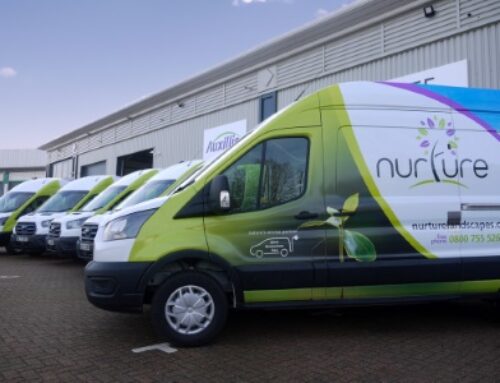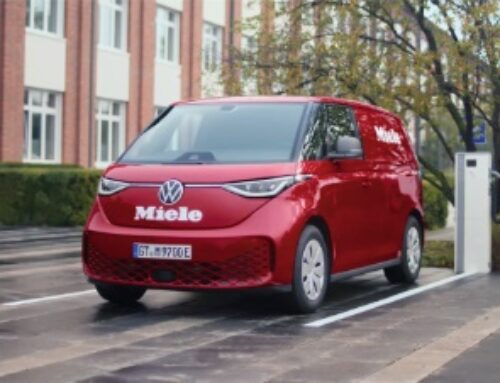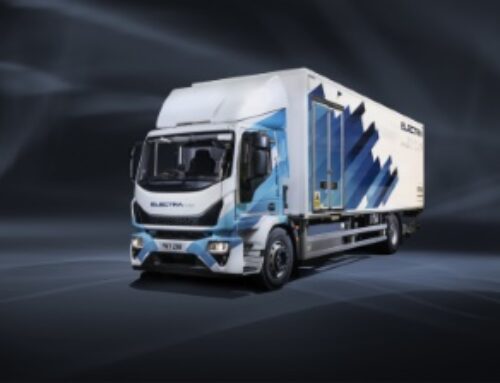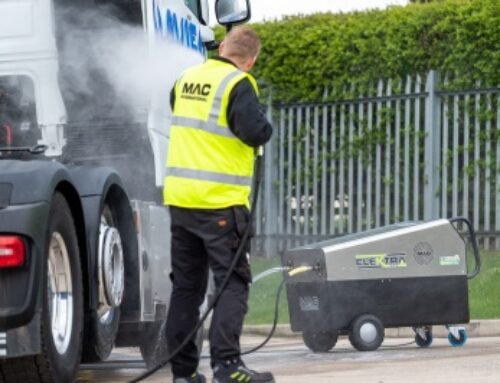Keyfuels: how fuel cards can support hauliers
 Keyfuels has offered advice for fleets on the cost-saving and operational benefits of fuel card and associated fuel management solutions.
Keyfuels has offered advice for fleets on the cost-saving and operational benefits of fuel card and associated fuel management solutions.
“Fuel cards have been used for many years as a safe and secure way of managing company fuel spending,” said Paul Holland, managing director for UK Fleet at Keyfuels (pictured, right).
“As technology progresses, so too does the capability of fuel cards, so it’s important to take a look at some of the key benefits they can offer hauliers, the unique proposition offered by Keyfuels, and how this can impact the day-to-day operations of the companies they work for.”
Keyfuels’ network comprises around 3,500 sites in the UK and continues to grow, which Paul says ensures customers can refuel with maximum convenience.
“Drivers are also able to utilise the Site Locator App to navigate the network to find the sites that work for them to ensure maximum convenience,” he added.
“While purchasing fuel is the main use for a fuel card, modern cards can be used for much more, with the capability to pay for other on the road expenses such as toll fees, AdBlue and other essentials that have been approved by their employer.”
It is important to note that different fuel cards will provide different offerings when it comes to their pricing structures, says Paul, adding that he would advise businesses to find one that caters to both those who want to pay as they go as well as those who prefer to bunker.
“Pay As You Go enables businesses to benefit from a fixed weekly price for fuel that is typically cheaper than the price at the pump,” he continued.
“Those that prefer to bunker fuel can purchase their own fuel in bulk from a supplier and can also integrate their own facilities with on-the-road drawings. This is generally the most cost-effective way to refuel, particularly for larger organisations.
“At Keyfuels, we work in close partnership with fleet operators, helping them to buy fuel effectively, minimise consumption and leverage technology to gain competitive advantage. That includes working to eliminate dead mileage, as making detours to refuel costs both time and fuel.
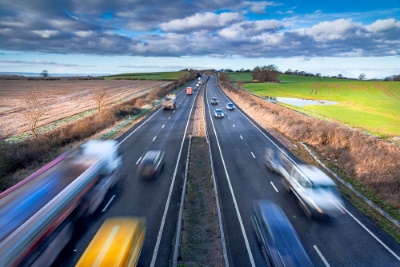 “What’s more, our payment terms are twice monthly by Direct Debit, with up to 30 days’ interest free credit. This means that our customers’ transactions are consolidated into a single HMRC-compliant invoice that is also in a VAT approved format to ease the admin burden and improve efficiencies for businesses.
“What’s more, our payment terms are twice monthly by Direct Debit, with up to 30 days’ interest free credit. This means that our customers’ transactions are consolidated into a single HMRC-compliant invoice that is also in a VAT approved format to ease the admin burden and improve efficiencies for businesses.
“In terms of cost of fuel cards, this can depend on the card and any additional services added on. Our customers can either register their cards to a driver or a vehicle, which means they can set limits on card activity. This can range from the type of fuel purchased, including or excluding certain locations for refuelling, and making additional purchases like toll fees.”
Data is one of the most valuable assets a company has, says Paul, so it’s important to leverage it to improve usage, efficiency and optimise spending.
“This is why we offer an extensive suite of management information reports to break down card activity, monitor transactions, and view intelligence on stock, transactions and mpg,” he explained.
“Bolstering security, we also created and implemented next level velocity controls to monitor where and when drivers refuel and enforce them in real time.”
Looking to the future, Paul highlighted alternative fuels as another key consideration.
“Although it may be some time before EV is widespread, the main alternative fuels are biodiesel, HVO, natural gas, and hydrogen,” he said.
“Any of these would be a viable short-term replacement for diesel fuel, particularly hydrogen, but there are two key problems that are preventing their widespread adoption.
“The first is cost and the second is that the infrastructure for these types of alternative fuels is much less well-developed than it is for petroleum, diesel or EVs. While EV charging stations are growing exponentially, even appearing in people’s homes, it is rare to find places to fuel up with biodiesel, natural gas and especially hydrogen.
“Our role is to support our customers through these shifting times and ensure our fuel cards have the ability to purchase all types of alternative fuels, keeping our hauliers on the roads and delivering the essential items our nation needs.”








